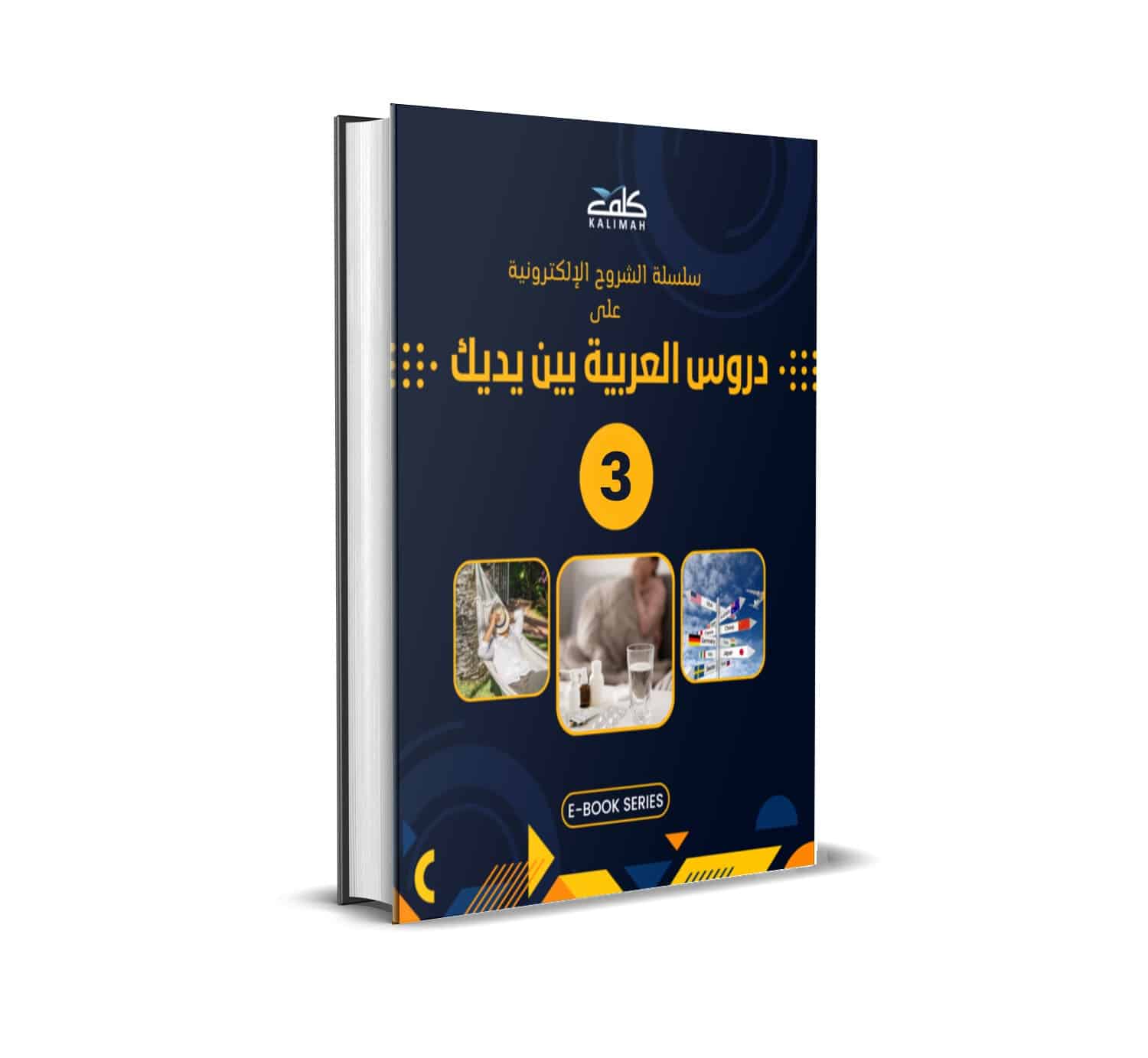In a nutshell: Learning Arabic to understand the Quran transforms your spiritual journey, allowing you to grasp the divine beauty, depth, and wisdom of Allah’s words. By mastering the Arabic language and engaging directly with the Quran, you deepen your connection and enrich your faith profoundly.
Renowned Orientalist Arthur Arberry once said that hearing the Quran in Arabic was like “listening to the beating of [his] heart.” German scholar Anna Maria Schimmel went further, arguing that the Quran’s true beauty is simply untranslatable: “The Quran is the word of Allah, revealed in the clear Arabic tongue. Its translation will not go beyond the superficial level. Who can depict the beauty of the word of God in any language?!” These powerful statements highlight why learning Arabic is the only way to fully understand and appreciate the Quran’s profound message.
As-salamu alaykum (Peace be upon you), dear reader. Imagine opening the Quran and reading the words directly, feeling their depth and beauty in the language they were revealed. This is not just a dream; it’s a reality that you can achieve.
For many years, we at Kalimah have had the honor of helping non-native speakers unlock the profound meanings of the Quran by learning Arabic. Today, we invite you on a journey to discover why and how to learn Arabic to understand the Quran.
Learn Arabic for the Quran
Learning Arabic to understand the Quran is not merely acquiring a language; it’s embarking on a transformative journey that connects your soul directly to the divine words of Allah (SWT). The Quran, revealed in Arabic, holds a unique beauty and depth that translations often miss. By learning the Arabic Quran, you unlock the ability to appreciate the eloquence, the rhythm, and the subtle nuances woven into the very fabric of the Quran.
The Quran was revealed in Arabic for a profound reason. It’s a language renowned for its richness, expressiveness, and precision. Scholars across centuries have marveled at the Quran’s linguistic miracle, a testament to its divine origin. As you delve into the language, you’ll start to grasp the depth and wisdom behind this miracle.
Let’s take a familiar example: the word “Sabr” (صبر), often translated as “patience.” However, in Arabic, “Sabr” encompasses a wider spectrum of meanings, including steadfastness, endurance, and unwavering trust in Allah’s plan. Imagine reading a verse like:
“وَاصْبِرْ عَلَىٰ مَا يَقُولُونَ وَاهْجُرْهُمْ هَجْرًا جَمِيلًا”
“And be patient over what they say and avoid them with gracious avoidance” (ٍSurah Al-Muzamil 73:10)
Understanding the full depth of “Sabr” allows you to appreciate the profound guidance this verse offers in facing adversity. It’s not just about passively enduring hardships; it’s about actively responding with grace and unwavering faith.

The Quran is replete with such examples where the Arabic language unveils layers of meaning that might otherwise remain hidden. Consider the Arabic word “قلب” (qalb), commonly translated as “heart.”
However, the Quran transcends the physical organ and encompasses the spiritual center of our being – our intellect, emotions, and intentions. As you explore this richer meaning, you’ll gain a deeper understanding of verses like,
“أَلَا بِذِكْرِ اللَّهِ تَطْمَئِنُّ الْقُلُوبُ”
“by the remembrance of Allah hearts are assured”(Ar-Ra’d 13:28)
The simple translation might suggest mere calmness, but in Arabic, it implies a profound tranquility and contentment that emanates from connecting with the divine.
So, Why Learn Arabic for the Quran?
Learning Arabic for the Quran enables you to experience a direct and intimate connection with the divine message. Imagine reciting a verse and feeling its profound wisdom resonate within your soul. Take, for instance, the verse:
“وَاذْكُر رَّبَّكَ فِي نَفْسِكَ تَضَرُّعًا وَخِيفَةً وَدُونَ الْجَهْرِ مِنَ الْقَوْلِ بِالْغُدُوِّ وَالْآصَالِ وَلَا تَكُن مِّنَ الْغَافِلِينَ”
(And remember your Lord within yourself in humility and in fear without being apparent in speech – in the mornings and the evenings. And do not be among the heedless) (Al-A’raf 7:205)
In Arabic, the words “tadarru’an wa khifatan” (تضرعًا وَخِيفَةً) evoke a sense of deep humility, awe, and reverence that cannot be fully captured in translation. As you recite these words, you feel a sense of submission and surrender to Allah’s majesty, drawing you closer to Him.
By learning Arabic, you unlock the ability to not just read the Quran but to truly experience it. You can appreciate the beauty of its metaphors, the power of its imagery, and the emotional depth of its message. You can engage in a dialogue with the divine text, pondering its meanings and reflecting upon its timeless wisdom.
The journey of learning Arabic for the Quran is a transformative one. It is an act of devotion, a quest for knowledge, and a path towards spiritual enlightenment. It allows you to connect with the Quran on a profound level, fostering a deeper understanding of Islam and strengthening your relationship with Allah. As you embark on this journey, remember the words of the Prophet Muhammad (peace be upon him):
“خَيْرُكُمْ مَنْ تَعَلَّمَ الْقُرْآنَ وَعَلَّمَهُ”
(The best among you are those who learn the Quran and teach it.) (Grade: Saheeh)
May your journey be filled with blessings and may Allah grant you success in your pursuit of knowledge.
How to Learn Quranic Arabic?
So, how to learn Arabic for the Quran? Learning Quranic Arabic starts with mastering the Arabic alphabet and short vowels. It is recommended to begin with Modern Standard Arabic (MSA) before transitioning into Classical Arabic to gain a strong foundation. Additionally, practicing through listening to Quranic recitation and writing Arabic calligraphy can significantly enhance your learning journey.
1. Arabic Alphabet & Short Vowels
Like any beautiful structure, learning Quranic Arabic starts with a solid base. Begin by immersing yourself in the Arabic alphabet (الأبجدية العربية), paying close attention to the unique sounds of each letter. Proper pronunciation (النطق المضبوط) is key to truly appreciating the Quran’s recitation.
- Alif, Ba, Ta: Familiarize yourself with the 28 letters, their sounds, and how they connect. Take your time here, as this foundation will make the rest of your journey smoother.

- Fatha, Kasra, Damma: These short vowels (الحركات القصيرة) are like musical notes that give life to the letters. Learn how they change the sound of a word. For instance, “kataba” (كَتَبَ – he wrote) becomes “kutiba” (كُتِب – it was written) with the change of just 2 vowel.

2. Words of the Quran
As you progress, focus on mastering the most frequent words found in the Quran. These words are the building blocks of your understanding.
- Rabb (رب): Meaning “Lord,” this word reminds us of our relationship with the Divine.
- Aman (آمن): To “believe” is at the core of faith, and this word reinforces that concept.
3. Learn Arabic Grammar to understand Quran
Think of Arabic grammar (النحو والصرف) as the thread that weaves words into meaningful sentences.
- Nahw: Uncover the rules governing word order and relationships.
- Sarf: Learn how words transform to convey different meanings.
- Practice: Analyze Quranic verses to solidify your understanding.
- Seek Guidance: Learn from Native teachers and experts.
Start with the essentials:
- Verb Conjugation (تصريف الأفعال): Learn how verbs change based on who’s doing the action and when. For example, the verb “kataba” (كتب – he wrote) transforms into “taktubu” (تكتب – you write) when the subject changes.
- Noun-Adjective Agreement (مطابقة الاسم والصفة): Discover how adjectives need to match the nouns they describe in gender and number. For instance, “rajul saleh” (رجل صالح – a righteous man) becomes “rijal salihoon” (رجال صالحون – righteous men) in the plural.
4. Learn With a Mushaf
Begin to engage with the Quran itself, starting with shorter chapters (suwar – سور). The beauty of Quranic Arabic lies in its ability to convey deep meanings through eloquent words. Tafsir (تفسير), or Quranic commentary, can be a wonderful guide as you delve into these verses.
5. Start With MSA Before Transitioning into Classical Arabic
Mastering the Quranic language is best achieved by starting with Modern Standard Arabic (MSA). Once you have a firm grasp of MSA’s grammar and vocabulary, transitioning into Classical Arabic, the language of the Quran, becomes significantly easier. While both MSA and Classical Arabic share the same fundamental rules, Classical Arabic is primarily distinguished by its application in the Quran.
6. Structured Learning – Your Guide
Consider enrolling in structured courses that are tailor-made for learning Arabic. Many online platforms offer comprehensive programs that guide you through each stage.
To accelerate your Arabic language acquisition, consider enrolling in Kalimah Center’s structured online courses. Designed for learners of all levels, from beginners to advanced students, Kalimah Center offers a comprehensive curriculum that covers Modern Standard Arabic (MSA) and Classical Arabic.
Kalimah courses, spanning 16 levels and totaling over 400 hours of one-on-one instruction, ensure a personalized and effective learning experience. With Kalimah Center’s expert guidance and interactive materials, you’ll be well on your way to mastering Arabic and unlocking a deeper understanding of the Arabic and Quran.

7. Listen and Write
Learning any language requires practice, and Quranic Arabic is no exception. Dedicate time each day to reading, writing, and even speaking.
- Quranic Recitation (تلاوة القرآن): Listen to recitations by skilled Qaris (قراء), such as Al-Minshawi, to attune your ear to the correct pronunciation and the musicality of the Quran.
- Arabic Calligraphy (الخط العربي): Engage with the beautiful art of Arabic calligraphy. Writing out verses can be a form of meditation and a way to internalize the words.

How to Read Quranic Arabic?
It all begins with the Arabic alphabet (abjad). Each letter holds a unique sound. Familiarize yourself with the characteristics of Arabic letters, their unique shapes, and the sounds they represent. Resources like Kalimah’s Online Quran course focus on teaching our students the proper pronunciation of the Arabic Alphabet through the Noorani Qaida. This enables our students to effectively read any Surah of the Quran at any time. offer excellent beginner lessons.

Beyond individual letters, practice is key to perfecting your pronunciation. Quranic Arabic boasts a beautiful rhythm, with each letter flowing seamlessly into the next. Tajweed is like the fine-tuning of your reading. It’s a set of rules that govern pronunciation, ensuring your recitation is accurate and melodious.
Example: Notice how the letter “ق” (qaf) is pronounced deep in the throat, distinct from the “k” sound.
Immerse yourself in the melodic recitations available online and strive to replicate the nuances of each sound. Websites like Quran.com offer the Qur’an with transliteration and translation, making it easier to follow along.
As you gain confidence, begin exploring the Quran itself. Start with shorter chapters like Surah Al-Fatihah (The Opening) or Surah Al-Ikhlas (The Purity). Don’t worry if you don’t understand the meaning yet – focus on the sounds and the flow.
How to Learn Quran Arabic Online?
The digital age has made learning Quranic Arabic more accessible than ever. Here are some top resources:
1. YouTube Channels
- Lqtoronto: Brother Asif Meherali offers comprehensive lessons on Arabic grammar.
- Dream Big 23: Nouman Ali Khan provides a strong foundation in grammar with his engaging teaching style.
- Kalimah4Arabic: Our very own YouTube channel features expert lessons designed to engage and inspire learners.

2. Online Courses
At Kalimah Center, we understand the importance of accessible education. We offer free trial lessons so you can experience our teaching methods without any commitment. Our group sessions are also an affordable option, providing a supportive community of learners to share your journey with.
3. Books and Apps
- Iqraa: This book is perfect for beginners, including non-Arabs, children, and illiterate individuals. It employs a methodical approach to teach reading and writing.
- Attamheed Lelarabiyah (Arabic Language Basics): This book is ideal for students who have just learned the alphabet and are ready to progress to simple grammatical compositions in a communicative way.
- Droos Nahwiyah mena Al Moqaddemah Al AAjourromiyah A comprehensive guide to Arabic grammar, perfect for beginners looking to build a solid foundation before delving into Quranic Arabic.


Click Here to Explore our Bookstore
Which Arabic Dialect Should I Learn to Understand the Quran?
To understand the Quran, learning Classical Arabic is most beneficial, as it preserves the nuances and eloquence of the Quranic text. However, starting with MSA is a practical approach since it provides a solid foundation and is widely taught.
Practical Steps:
- Start with MSA: Build your foundation with the widely available resources and structured courses.
- Transition to Classical Arabic: Use Classical Arabic resources to deepen your understanding of Quranic texts.
- Engage with Quranic Texts: Regularly read and study the Quran with the help of tafsir (interpretations) and language guides.
Do Arabs Understand Quran Arabic?
Yes, Arabs can generally understand Quranic Arabic, although the level of comprehension varies based on their education and familiarity with classical texts. While Quranic Arabic is clear to those who have studied it, it requires specific knowledge due to its archaic vocabulary and complex style.
Contextual Understanding:
- Educated Arabs: Those with a background in classical studies or Islamic education find Quranic Arabic more accessible.
- General Public: While they can understand the broad meanings, the subtleties and deeper interpretations might require further study.
Example of Comprehension:
- Verse: “وَمَا خَلَقْنَا السَّمَاءَ وَالْأَرْضَ وَمَا بَيْنَهُمَا لَاعِبِينَ” (Wama khalaqna al-samaa wa al-ard wa ma baynahuma la’ibeen) – “And We did not create the heavens and the earth and that between them in play.” (Al-Anbiya 21:16)
- Modern Understanding: The verse is generally understood, but appreciating its full depth and the context may need additional commentary.
How Long Does It Take to Learn Arabic to Understand the Quran?
Reaching a level of basic understanding might take around 2-3 years. To gain a deeper, more comprehensive understanding, it could take anywhere from 5-7 years of consistent study. Generally, it can take several years of dedicated study to reach a level where one can understand the Quran without relying heavily on translations. Here are some factors to consider:
- Language Background: If you already know a Semitic language like Hebrew or Aramaic, learning Arabic might be faster for you. However, if you’re coming from a language with a completely different structure, it might take longer.
- Study Routine: Consistency and immersion are key. Daily study and practice can significantly speed up the learning process.
- Quality of Resources: Using effective learning materials and resources tailored to Quranic Arabic can make a big difference.
- Teacher Guidance: Having a knowledgeable teacher to guide you through the nuances of Quranic Arabic can be invaluable.
Can a Beginner Understand the Quran?
No, a complete beginner might find it challenging to understand the Quran in its original Arabic form due to the classical nature of the language and the depth of its content. However, beginners can start to understand the Quran by taking the following steps:
- Learn Basic Arabic Grammar and Vocabulary: Starting with the fundamentals of the Arabic language is crucial. This includes learning the alphabet, basic grammar rules, and common vocabulary.
- Study Quranic Arabic: Focusing specifically on the vocabulary and grammar used in the Quran can help. Many words and phrases are repeated throughout the text, so recognizing these can aid understanding.
- Use Translations and Tafsir (Exegesis): Using reputable translations and studying tafsir can help beginners understand the meanings and context of the verses.
- Join Quranic Arabic Classes: Enrolling in courses that specialize in teaching Quranic Arabic can provide structured learning and support.
With consistent effort, even beginners can start to grasp the meanings of simpler verses and gradually build their understanding over time.
Some of the Most Repeated Arabic Words in the Quran
Understanding the most repeated words in the Quran can provide a good foundation for beginners. Here are some of the most common words:
- قَالَ (Qala): Said (This is one of the most frequent verbs in the Quran and is often used to introduce speech.)
- يَوْمَ (Yawma): Day (Refers to the Day of Judgment and other significant days.)
- نَفْسٍ (Nafsin): Soul, self
- عَمِلَ (Amila): Did, worked (Often used to describe actions and deeds.)
- دُنْيَا (Dunya): Worldly life (Contrasts with the afterlife.)
- آيَةٍ (Ayatin): Sign, verse (Refers to verses of the Quran and signs of God in the world.)
- أَرْضٍ (Ardin): Earth, land
- سَمَاءٍ (Samaa’in): Heaven, sky
- مَلَكٍ (Malakin): Angel
- نَارٍ (Naarin): Fire (Often associated with Hell.)
Ready to Deepen Your Connection with the Quran Through Arabic?
You’ve started your journey to learn Arabic for Quranic understanding, but are you equipped with the right tools and guidance? Let Kalimah Center be your companion on this path.
Why Kalimah? Because our approaches to learn Arabic and the Quran are comprehensive:
- Integrated Learning: We intertwine Arabic language instruction with Quranic studies, ensuring you gain both linguistic skills and spiritual insights.
- Certified Experts: Our Ijazah-certified teachers have a deep understanding of Tajweed and the nuances of Quranic Arabic, ensuring you learn from the best.
- Holistic Curriculum: We cover everything from the Arabic alphabet to advanced Tajweed rules, empowering you to recite and understand the Quran with confidence.
Kalimah is the bridge between your desire to learn and a profound understanding of the Quran:
- Noorani Qaida: Master Arabic pronunciation for accurate and beautiful Quranic recitation.
- Graded Tajweed Courses: Progress step-by-step through the complexities of Tajweed rules.
Explore our courses:
- Quran and Tajweed Courses: Master the art of Quranic recitation, from the basics of Arabic pronunciation to advanced Tajweed rules.
- Arabic Language Courses: Expand your vocabulary, grammar, and comprehension skills to unlock the deeper meaning of the Quran.
- Supportive Community: Connect with fellow learners in our group classes, share insights, and build a lifelong relationship with the Quran.

Conclusion:
Learning Arabic to understand the Quran is more than just acquiring a language; it’s a spiritual journey that connects you to the divine words of Allah. The Quran’s unique beauty and depth are best appreciated in its original Arabic form, which reveals eloquence, rhythm, and subtle nuances that translations often miss.
By learning Arabic, you unlock the profound wisdom and guidance embedded in the Quran’s language, enriching your spiritual experience and deepening your connection with the divine.
To embark on this transformative journey, start with mastering the Arabic alphabet and short vowels, then progress to understanding frequent Quranic words and Arabic grammar.
Engaging with the Quran directly, beginning with shorter chapters and utilizing resources like tafsir for deeper insights, can enhance your learning. Structured courses and consistent practice, including Quranic recitation and Arabic calligraphy, are crucial. This path not only enhances your comprehension of the Quran but also fosters a deeper understanding of Islam and strengthens your relationship with Allah.












